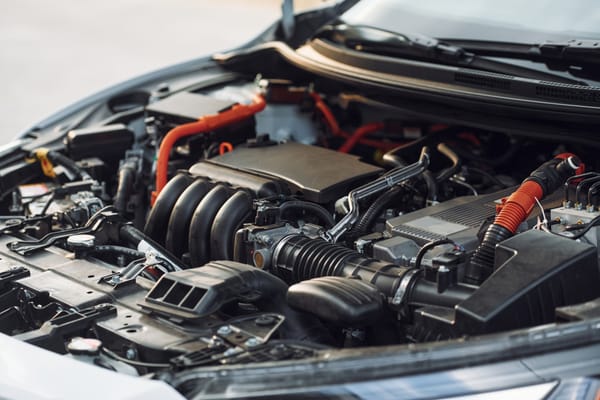Top 5 Legal Pitfalls to Avoid When Selling Your Car Privately

Selling your car should be a happy moment. You get some extra cash. You make space for a new ride.
But selling it privately in Kenya can get tricky. Mambo ni mengi, masaa ni machache. One small mistake can lead to big legal headaches.
Don't worry, Peach Cars has got your back. Here's how to sell your car smoothly and avoid drama with the law.
Pitfall #1: The "As-Is" Trap (Aka Misrepresentation)
You've seen sellers say it. "Selling the car as-is." This phrase is meant to protect them from future complaints.
But "as-is" is not a magic shield. It doesn't give you a license to lie about the car's condition. Hiding a major problem is called misrepresentation, and it can land you in court.
What is Misrepresentation?
- It's actively hiding a known major defect.
- It's lying when a buyer asks a direct question. For example, saying "Gearbox iko sawa" when you know it's about to die.
- It's a deliberate attempt to deceive the buyer for a higher price.
Imagine selling a car knowing the engine leaks oil like a sieve. You clean it up just before the viewing. The buyer asks about leaks, and you confidently say, "Hii gari haina shida bro!" That's a classic case of misrepresentation.
The law protects buyers from such deception through the Consumer Protection Act, 2012, which prohibits unfair practices, including representing that goods have characteristics they don't have.
If they discover the issue shortly after, they can sue you for the repair costs or even to reverse the sale. Honesty is always the best policy.
Pitfall #2: The Handshake Deal (Where is the Paperwork?)
Kenyans love a good handshake deal. It feels simple. It feels based on trust. Ask Rigathi Gachagua what happened between him and Ruto 😁.
When it comes to a car sale, a handshake is not enough. You need a written, signed sale agreement. Without it, it's your word against theirs if shida arises.
A sale agreement is your legal proof of the transaction. It protects both you and the buyer.
What Your Sale Agreement MUST Have
A proper agreement doesn't need complex legal jargon. It just needs to be clear. Make sure it includes:
- The Parties: Your full names and ID numbers, and the buyer's.
- The Car: The car's make, model, registration number (plate number), and chassis number (VIN).
- The Price: The agreed selling price in Kenyan Shillings.
- Payment Details: How the money will be paid (e.g., bank transfer, banker's cheque).
- The "As-Is" Clause (The Right Way): A clause stating the buyer has inspected the car and accepts its current condition. This works only if you have been honest about everything.
- Signatures: Signatures of the seller, the buyer, and at least one witness.
The legal requirements for a car sales agreement in Kenya ensure that all transactions are conducted fairly and transparently, protecting both the buyer and the seller.
Having this document can save you from a world of trouble. It's the first thing a lawyer will ask for if there's a dispute.
Pitfall #3: The Payment Scams
The moment of truth has arrived. The buyer is ready to pay. All good, but be extra careful here ndo usioshwe.
Scammers have become incredibly creative. Relying on just a text message or a promise can leave you without your car and your money.
Protect yourself from common payment traps.
Secure Your Money
Here are some safe payment methods you can consider:
- Avoid Personal Cheques: A personal cheque can bounce days after you've released the car. By then, the "buyer" is long gone.
- Verify M-Pesa Messages: Don't just trust the SMS notification. Log into your M-Pesa account to confirm the funds have actually landed. Scammers can fake these messages perfectly.
- Insist on a Banker's Cheque: This is a cheque issued by the bank itself. It's a much safer option than a personal cheque. Go with the buyer to their bank to witness it being drawn.
- Best Option - Direct Bank Transfer (RTGS): This is the gold standard. Go to the bank with the buyer. Wait for the bank teller to confirm the transfer is complete and the funds are irreversible and reflecting in your account.
- Crucial Rule: Never, ever hand over the keys, the logbook, or the signed sale agreement until you have confirmed that 100% of the money is cleared in your account.
Pitfall #4: Failure to Transfer Ownership
This is the biggest legal trap for private sellers in Kenya. You've been paid. You've handed over the keys. You think the deal is done.
Wrong. Until you officially transfer ownership on the government's portal, you are still legally responsible for that car.
If the new owner commits a traffic offense, you'll be the one getting the notification. If the car is used in a crime, the police will be knocking on your door first. You must initiate and complete the transfer process.
The NTSA Transfer Process is Your Responsibility
The transfer of ownership is now done online via the NTSA TIMS Portal, with the seller being the one who initiates this process. As the seller, you are the one who initiates this process.
Here's a simplified breakdown:
- Log In: Access your TIMS account at the NTSA TIMS Portal.
- Initiate Transfer: Navigate to Vehicle Registration > Transfer Vehicle Menu > Apply for Transfer of Ownership. Select the vehicle and enter the buyer's details.
- Upload Documents: Attach a clear, coloured scanned copy of the vehicle's logbook in PDF format.
- Buyer Accepts: The buyer receives a notification and must log in to their account to accept the ownership transfer by navigating to Vehicle Transfer > Accept Ownership.
- Make Payment: The transfer fees range from Ksh. 1,500 for vehicles up to 1000cc to Ksh. 5,000 for vehicles over 3000cc, plus an e-Sticker fee of Ksh. 750.
- Finalise: Once payment is confirmed, NTSA processes the transfer within 3 working days. The new logbook will bear the buyer's name.
Do not consider the car sold until you have a copy of the new logbook with the new owner's name on it. This is your only proof that you are no longer legally tied to that vehicle.
For a more detailed guide, check out our step-by-step logbook transfer guide.
Pitfall #5: The Hidden Baggage (Insurance & Loans)
Finally, there are a few loose ends you must tie up. Forgetting them can lead to financial and legal complications. These are the things that follow the car unless you cut the cord.
Cancel Your Insurance Policy
Once the car is sold and transferred, call your insurance company immediately. Cancel your policy for that vehicle.
If you don't, the new owner could get into an accident. The victim's lawyers could still try to come after your policy for claims. Cancelling the policy also means you might be entitled to a refund for the unused portion of your premium.
Clear Any Existing Loans
Are you still paying a loan for the car you're selling? You cannot legally sell a car that has an active loan against it. The logbook is likely held by the bank or MFI as security.
- Be Transparent: You must inform the buyer if there's an outstanding loan.
- Clear the Loan: The best practice is to use part of the buyer's payment to clear the loan balance directly at the bank.
- Get a Discharge Letter: Once the loan is cleared, the lender will provide a discharge letter. This is what you need to remove their name (the chattel) from the logbook records.
Selling a car privately can be rewarding. You just need to be smart about it. By being aware of these legal pitfalls, you can protect yourself, your money, and your peace of mind.
Tired of the Private Selling Hustle?
Truth be told? All this can be a lot of work. The viewings, the negotiations, the paperwork... It's a full-time job.
Why not skip the drama? At Peach Cars, we make selling your car safe, transparent, and incredibly easy. We handle the 600-point inspection, the marketing, and all the tricky legal paperwork, including NTSA transfers, for you. We even use secure escrow payments to protect your money.
Get a free, fair valuation for your car today or call us at +254 709 726 900 to get started!




